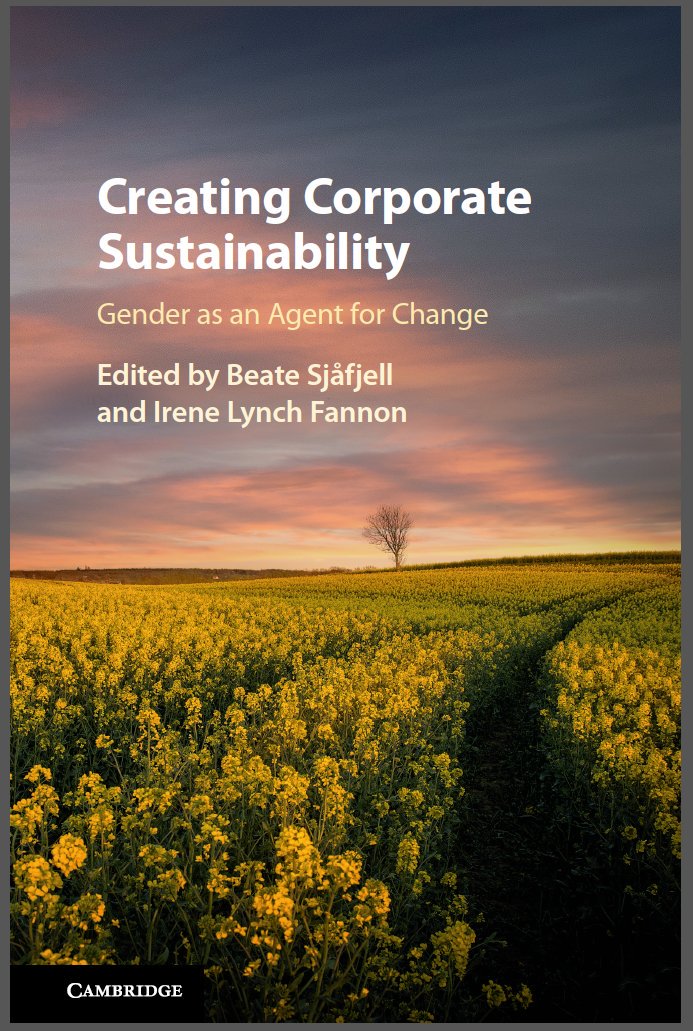In This Section
- Home
- About us
- People
- Courses
- Current Students
- Research
- Shaping Society
- Careers
- News and Events
- Alumni
- International Applicants
- College of Business and Law
- Scholarships and Prizes
- European China Law Studies Association Annual Conference 2025
Professor Irene Lynch Fannon Co-Editor of New Volume Examining Perceptions and Participation of Women in Business

Published by Cambridge University Press, Creating Corporate Sustainability Gender as an Agent for Change, features a range of internationally renowned female scholars from an array of disciplines.
In her powerful foreword to Professor Beate Sjåfjell and Professor Irene Lynch Fannon’s edited volume Creating Corporate Sustainability Gender as an Agent for Change, Director of Globe EU and Member of the European Parliament, Sirpa Pietikäinen, lamented the fact that at the current rate “women might expect to reach economic parity with men in 2234. We cannot wait that long”.
Emanating in part from the work of Daughters of Themis: International Network of Female Business Scholars, an array of female scholars bring fresh perspectives on whether or not women have acted as agents for change in a corporate setting and ask if they have the potential to do so in the future.
Split into three sections, Chapter One describes how the interdisciplinary volume does not rush to the conclusion that women really do act as change agents. Instead, it presents the reader with more considered conclusions and with a tentative starting point from which the enquiry can continue.
Over the course of three diverse essays, the opening section describes how women changed cultural and corporate environments from the bottom up through activism.
The contributors also describe how women in the developing world, despite ingrained cultural limitations, which at times seemed were more powerful than internal resistance, changed attitudes within their own communities by asserting non-traditional rights to represent themselves.
In contrast to the opening essays, the second section focuses on the implementation of top down approaches, whether voluntary or regulatory, to include women on boards.
Comprised of five individual essays, the comprehensive second section deals with two thematic questions. The first is concerned with resistance to even small changes, the strength of which continues to surprise the authors of the volume.
The second is concerned with reporting regulations, how they are presently enforced and how they might evolve in future.
While the authors hypothesise that reporting regulations may affect change over time, they are also critical of current regulations which “can justifiably be criticised as a compromise solution between those who wish to see a shift toward corporate sustainability and those who resist regulation”.
The third section of the volume features five further essays, including a contribution from UCC School of Law’s Dr Catherine O’Sullivan, who challenges a popular media driven narrative which asks whether the economic crash would have happened if there were more women involved in senior corporate and banking management roles.
Building on the previous essays, the third section illustrates how current legal frameworks can and aught to be changed to create a space in which organisations and their primary actors can act in ways which are driven by the overarching ethic of sustainability.
Finally, Professor Irene Lynch Fannon and Professor Beate Sjåfjell conclude the volume by presenting readers with a road map for further thought in a chapter titled Corporate Sustainability: Gender as an Agent for Change?
Creating Corporate Sustainability Gender as an Agent for Change is published by Cambridge University Press.
School of Law
Scoil an Dlí
Contact us
Room 1.63, Aras na Laoi, T12 T656
